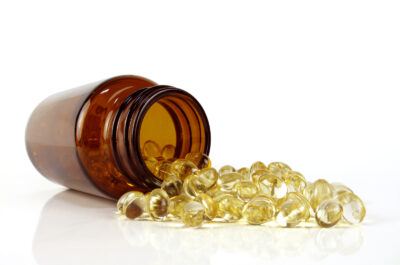Vitamin C was once thought to be a great supplement for preventing colds and for general good health. However, new studies are showing this might now be the case. The evidence suggest that vitamin C has no effect on the incidence of colds, except in people exposed to short periods of extreme physical stress. In addition a second study suggests that high doses in men can cause kidney stones.
The researchers who studied vitamin C and its effects on colds came to the following conclusion, “The failure of vitamin C supplementation to reduce the incidence of colds in the general population indicates that routine vitamin C supplementation is not justified, yet vitamin C may be useful for people exposed to brief periods of severe physical exercise. Regular supplementation trials have shown that vitamin C reduces the duration of colds, but this was not replicated in the few therapeutic trials that have been carried out. Nevertheless, given the consistent effect of vitamin C on the duration and severity of colds in the regular supplementation studies, and the low cost and safety, it may be worthwhile for common cold patients to test on an individual basis whether therapeutic vitamin C is beneficial for them.”[1]
The study examined community trials involving 10,708 participants, where the pooled risk ratio was 0.97 (95% confidence interval (CI) 0.94 to 1.00). There were five trials involving a total of 598 marathon runners, skiers and soldiers on subarctic exercises yielded a pooled RR of 48% (95% CI 0.35 to 0.64).
Thirty-one comparisons done by the researchers examined the effect of regular vitamin C on common cold duration (9745 episodes). In adults the duration of colds from people using vitamin C was reduced by 8% (3% to 12%) and in children by 14% (7% to 21%). In children, 1 to 2 g/day vitamin C shortened colds by 18%. The severity of colds was also reduced by regular vitamin C administration which might be a positive effect of using vitamin C as a supplement.
A second study just published in JAMA internal medicine showed that absorbic acid or the use of vitamin C in men could be responsible for kidney stones.[2] This same result was not replicated in women as women have a lower threshold of developing kidney stones. The other note in this study was that multivitamins did not have an increased effect in causing kidney stones. This might provide an alternative direction for men wishing to avoid this problem. “The average man needs 90 milligrams (mg) of vitamin C a day; the average woman 75 mg. The vitamin is important for making and repairing connective tissue, skin, and bones. It also helps the body absorb iron.” [3]Sources of vitamin C can include fruits and vegetables.
Kidney stones develop for a number of reason which can include; weight (obesity boosts the risk), and diet (eating a lot of animal protein) and not drinking enough water. “The most common kidney stone is a mixture of calcium and oxalate, a substance found in many foods. Some people break down vitamin C into oxalate.” A quote from Dr. Curhan stated that “High dose vitamin C supplements should be avoided, particularly if an individual has a history of calcium oxalate stones.”[4]
[1] Hemila, Harri, and Chalker, Elizabeth. Vitamin C for preventing and treating the common cold. The Cochrane Library. Published Online: 31 JAN 2013, Assessed as up-to-date: 29 NOV 2012 http://onlinelibrary.wiley.com/doi/10.1002/14651858.CD000980.pub4/abstract
[2] Thomas, Laura, MSc, and others, Ascorbic Acid Supplements and Kidney Stone Incidence Among Men: A Perspective Study. JAMA Intern Med. 2013;():1-2. doi:10.1001/jamainternmed.2013.2296
[3] Skerrett, P.J.High Dose Vitamin C Linked to Kidney Stones in Men. Harvard Health. Feb. 5, 2013. http://www.health.harvard.edu/blog/high-dose-vitamin-c-linked-to-kidney-stones-in-men-201302055854
[4] Ibid


